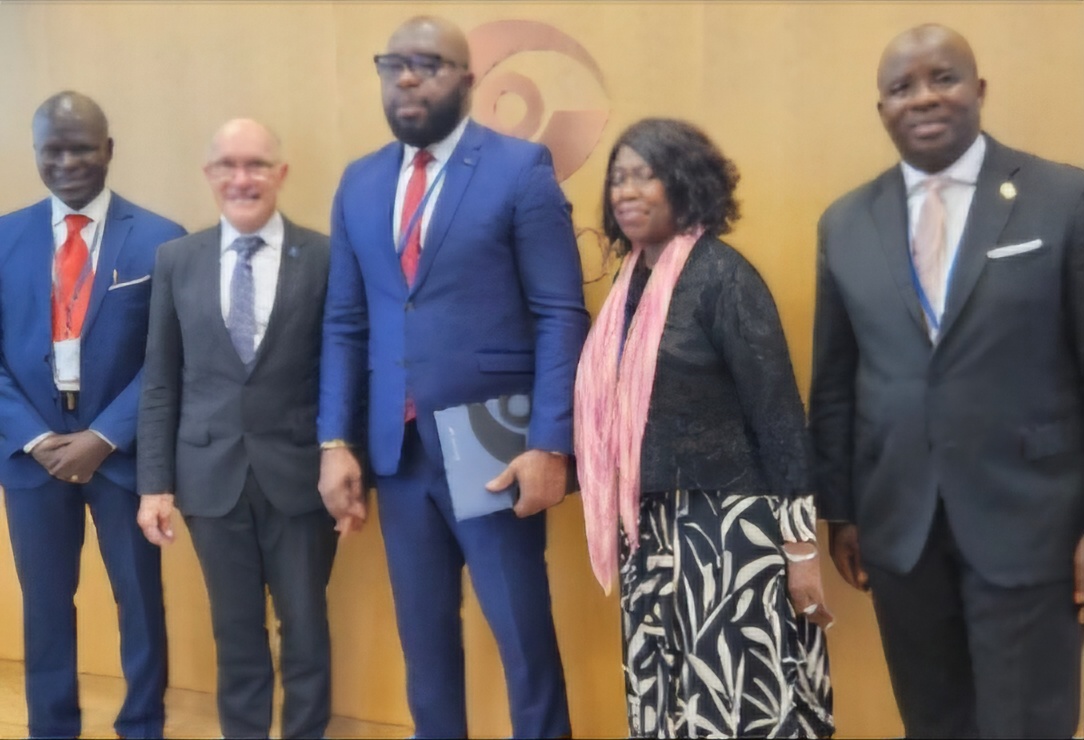Liberia is being represented by the Deputy Minister for Legal Affairs, Ministry of Foreign Affairs, Cllr. Jeddi Mowbray Armah, as head of delegation at the International Atomic Energy Agency (IAEA) 68th General Conference in Vienna, Austria.
In delivering Liberia’s national statement, Cllr. Armah reaffirmed the country’s commitment to the peaceful application of nuclear energy.
The conference, which gathers international stakeholders, scientists, and government representatives, serves as a crucial platform for promoting nuclear safety, security, and development.
Cllr. Armah underscored Liberia’s dedication to harnessing nuclear technology for peaceful purposes, particularly in the areas of health, agriculture, energy, and environmental protection.
He highlighted that Liberia’s engagement with the IAEA reflects the government’s focus on adopting innovative technologies to drive sustainable development, while ensuring compliance with international regulations and safety standards.
“Liberia’s presence at this critical gathering is a testament to our nation’s alignment with global efforts to promote the responsible and peaceful use of nuclear technology. We are committed to working with the IAEA and other international partners to ensure that nuclear energy is used in ways that advance our national development goals, while safeguarding human health and the environment,” Cllr. Armah noted.
As Liberia seeks to enhance its capacity in nuclear science and technology, Cllr. Armah expressed the government’s interest in expanding collaboration with the IAEA, particularly in capacity building and technical assistance.
He emphasized the transformative benefits that nuclear technology can offer to Liberia’s development agenda, from improving healthcare through nuclear medicine to boosting agricultural productivity and energy security.
The IAEA conference also provided a platform for Liberia to engage with global experts and policymakers, exchanging best practices, innovative solutions, and insights on the vital role that nuclear energy can play in tackling global challenges such as climate change and food security.
As part of the conference, Cllr. Armah held discussions with senior officials from the IAEA and other member states, reaffirming Liberia’s commitment to the Non-Proliferation Treaty (NPT) and the IAEA’s safeguards aimed at preventing the spread of nuclear weapons.
He stressed Liberia’s dedication to maintaining a peaceful nuclear agenda in line with its obligations under international law.
Liberia’s participation in the conference marks another significant step in the nation’s efforts to integrate nuclear technology into its national development strategy, ensuring its role as a key player in the global discourse on the peaceful use of nuclear energy.
The Liberian delegation, led by Cllr. Armah, includes Dr. Emmanuel K. Urey Yarkpawolo (Executive Director of the Environmental Protection Agency), Younger Telewoda (Ambassador to Germany), Charles H. V. Allen, Jr. (Counselor at the Liberian Embassy in Germany), and Eddie Ville (Ministry of Foreign Affairs).
At the same time, The Deputy Foreign Minister held further bilateral discussions with Dr. Robert Floyd, Secretary General of the Comprehensive Nuclear Test Ban Treaty (CTBT), to establish a National Data Center (NDC) in Liberia for seismic activity monitoring.
Meanwhile, Liberia formally deposited five instruments of accession and acceptance. Resident Representative of the Republic of Liberia to the IAEA, Youngor Sevelee Telewoda, deposited the instruments on Liberia’s behalf.
The five conventions include: The Convention on Early Notification of a Nuclear Accident: This establishes a notification system for nuclear accidents with potential international transboundary effects on radiological safety, The Convention on Assistance in the Case of a Nuclear Accident or Radiological Emergency: This outlines a framework for cooperation and assistance in the event of nuclear accidents or radiological emergencies.
The Convention on Nuclear Safety (CNS): This commits parties operating civil nuclear power plants to uphold high safety standards, with peer reviews of their implementation reports.
Moreover, The Convention on the Physical Protection of Nuclear Material (CPPNM) and its 2005 Amendment: These legal instruments govern the physical protection of nuclear materials during international transport, criminalize related offenses, and promote international cooperation in the event of unlawful activities involving nuclear material.



